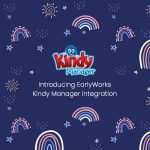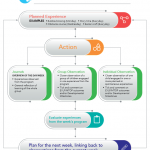The challenge of documentation
One of the greatest challenges facing early childhood educators would seem to be managing documentation. In fact, a 2016 survey of early childhood educators found that “the sheer volume of paperwork is becoming unmanageable for many educators, and many struggle to complete it in the time given.” (https://theconversation.com/one-in-five-early-childhood-educators-plan-to-leave-the-profession-61279) Some educators felt that the volume of paperwork was taking away from their daily interactions with children and families.
The first change that I would recommend is being guided by ACECQA rather than hearsay. It is sobering to know for instance that we are not expected to document everything; in fact, ACECQA recommends that we be selective in what we choose to document as “it is not possible to capture all of the rich experiences and learnings that occur every day.” ACECQA also suggest reminding ourselves of why we are documenting and for whom. So I guess if we are feeling pressure to provide constant photographic evidence, or to provide copious notes that will never be read, we need to rethink why we are doing what we’re doing. If our documentation is not extending learning, then why are we doing it?
Another change worth considering is using a quality online documentation tool. Not only is this a more sustainable practice, it can also save precious time, thus reducing stress. EarlyWorks’ interface is clean and intuitive, providing educators with the ability to enter information with minimum effort. EarlyWorks includes the EYLF and MTOP Frameworks, and leads educators through the planning cycle. Observations, experiences, journals, reflections of learning and outcome comments are automatically saved in each child’s file, so information only needs to be entered once. This documentation is then available for families to not only view, but also comment on. So families can also contribute to the documentation effort!







